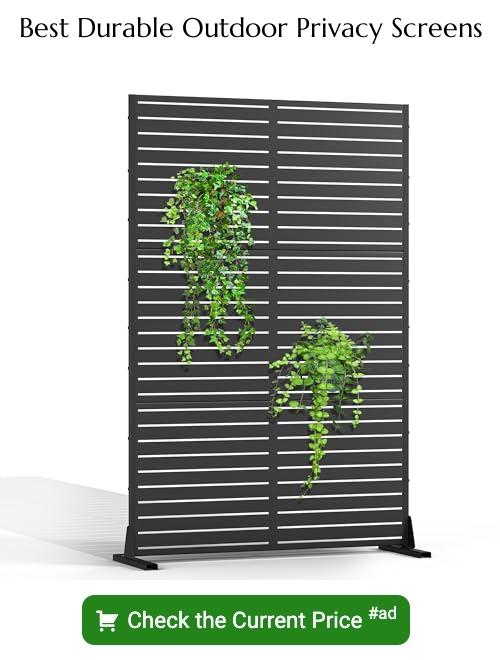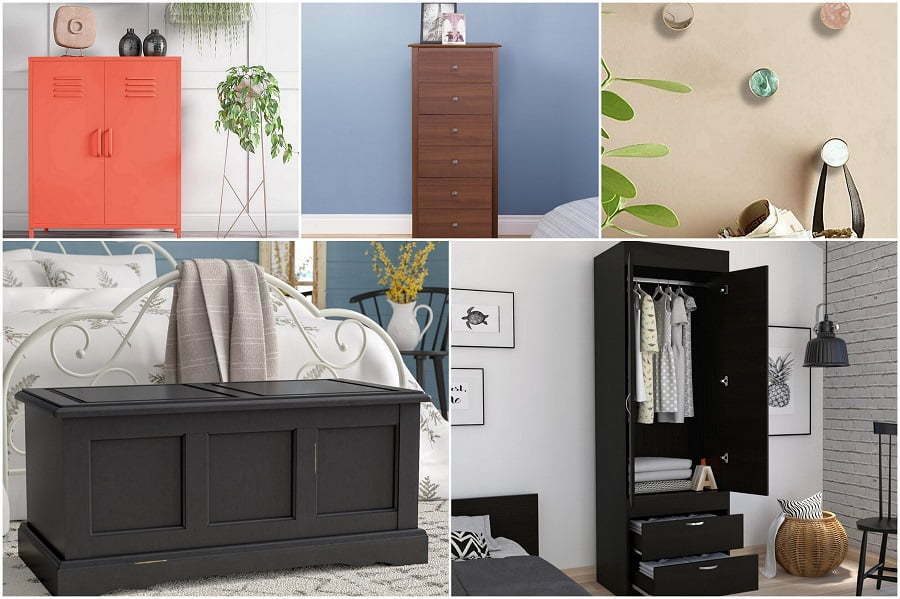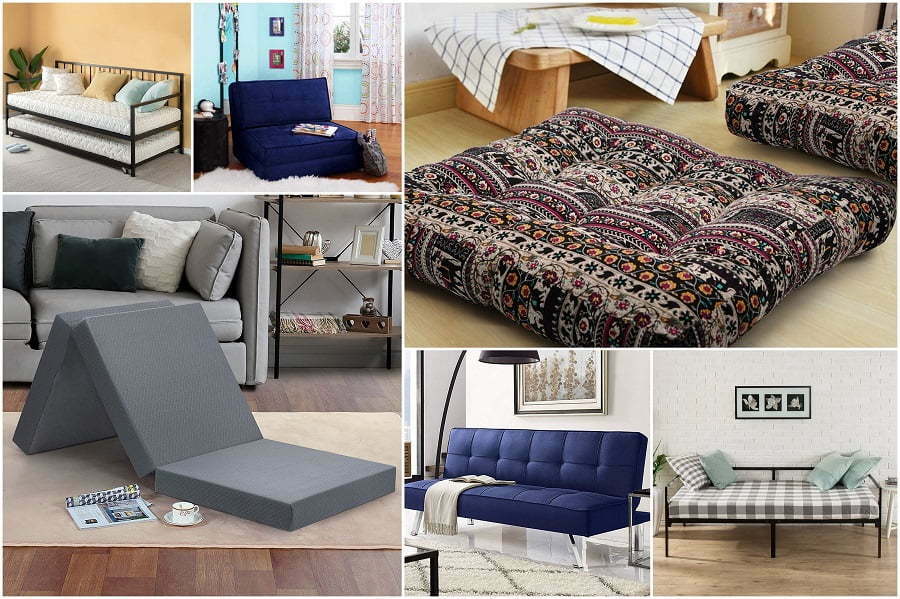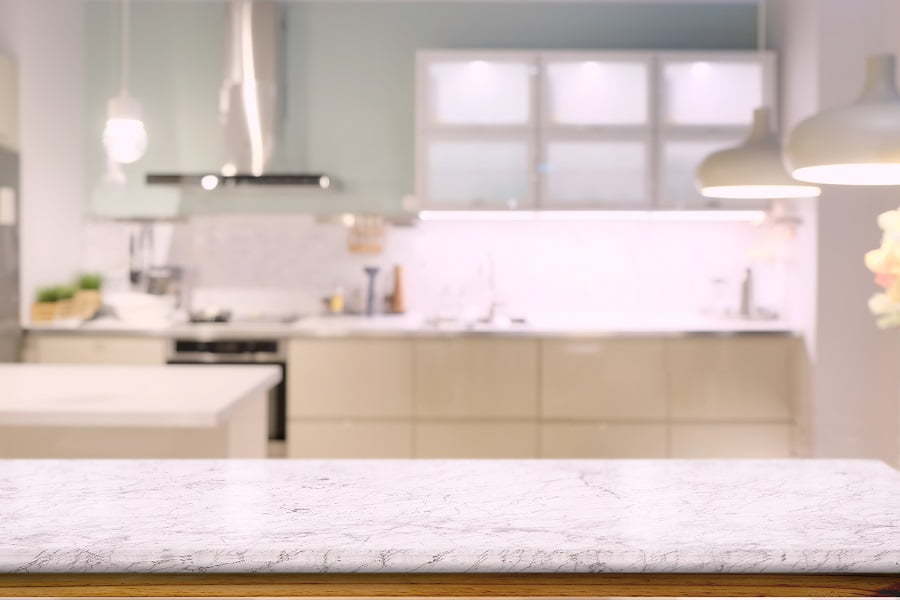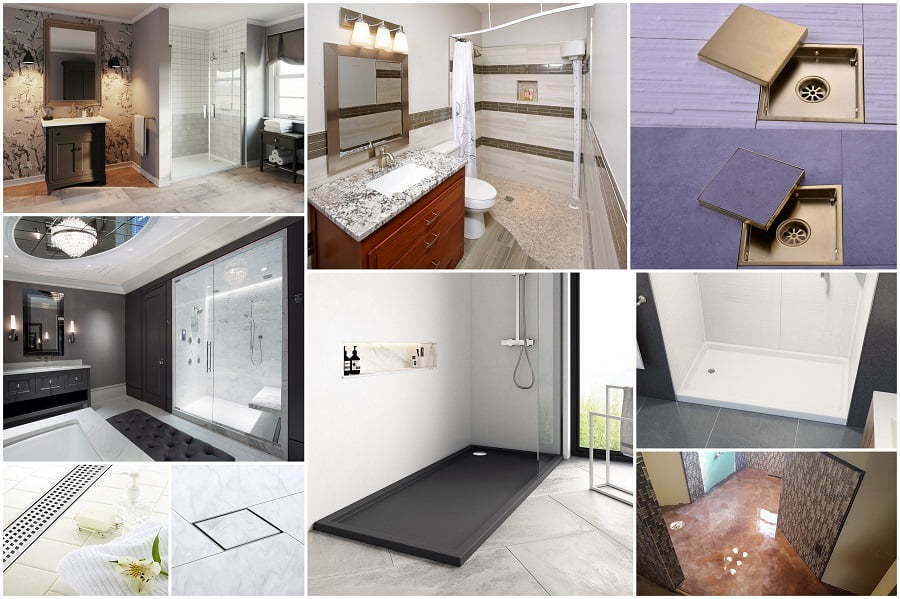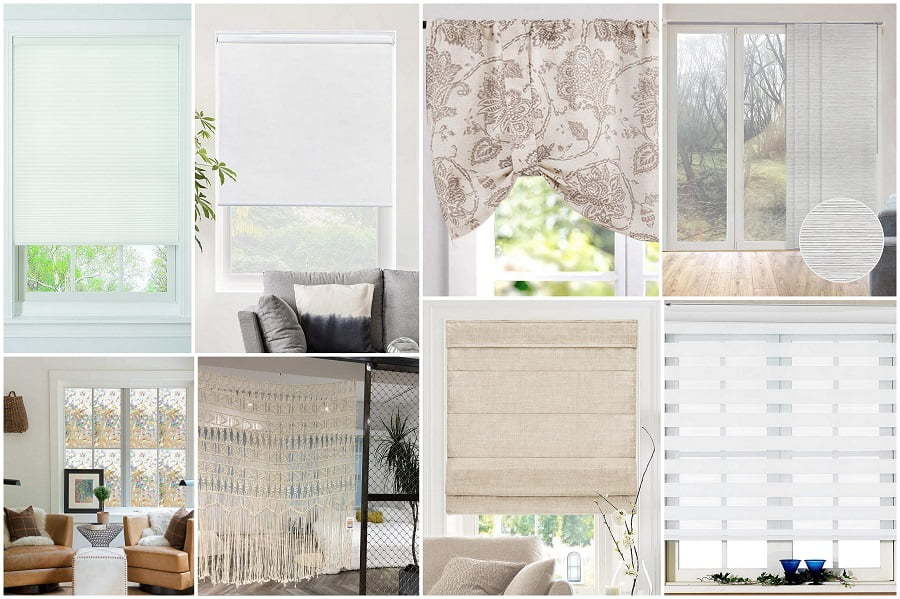Last updated on
Explore the world of wood fence alternatives as we dive into various eco-friendly and durable options to enhance your property’s aesthetic appeal and privacy.
Are you tired of the same old wooden fence in your backyard? Do you want to add a unique touch to your outdoor space without breaking the bank? Look no further! In this article, we’ll explore some alternative options for fencing that not only provide privacy and security but also add aesthetic value to your home. From recycled materials to living walls, we’ve got you covered.
So let’s dive in and discover some creative wood fence alternatives that will make your neighbors envious!
Vinyl Fencing
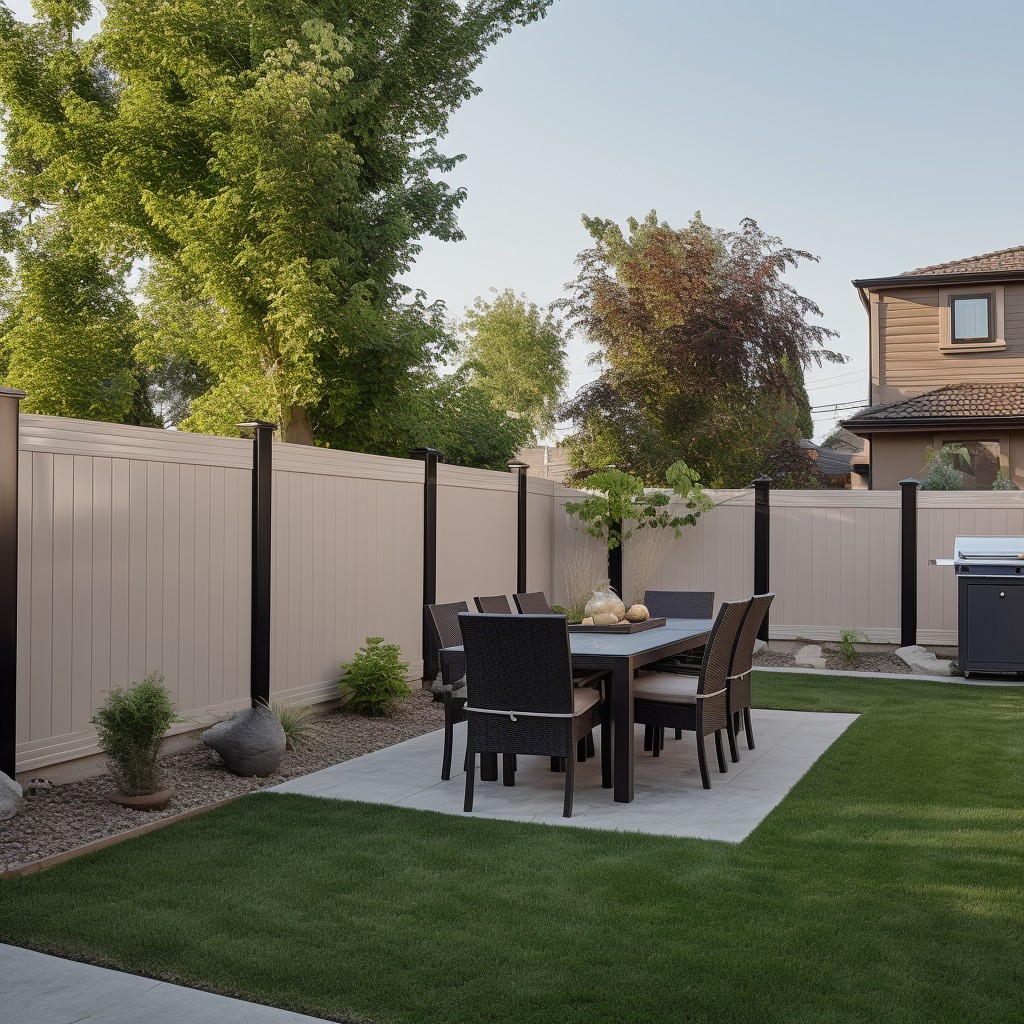
If you’re looking for a low-maintenance and affordable alternative to wood fencing, vinyl fencing is an excellent option. Vinyl fences are made from PVC (polyvinyl chloride) plastic, which makes them resistant to rotting, warping, and insect damage.
They come in various styles and colors that mimic the look of traditional wooden fences without requiring any upkeep.
One of the biggest advantages of vinyl fencing is its durability. Unlike wood or metal fences that can rust or corrode over time due to exposure to weather elements such as rain or snowfall; vinyl fence panels are designed with UV inhibitors that protect against fading caused by sunlight.
Another benefit of using vinyl for your fence project is its ease-of-installation feature. Most manufacturers offer pre-assembled panels with interlocking components making it easy for homeowners who want a DIY installation process.
Aluminum Fencing
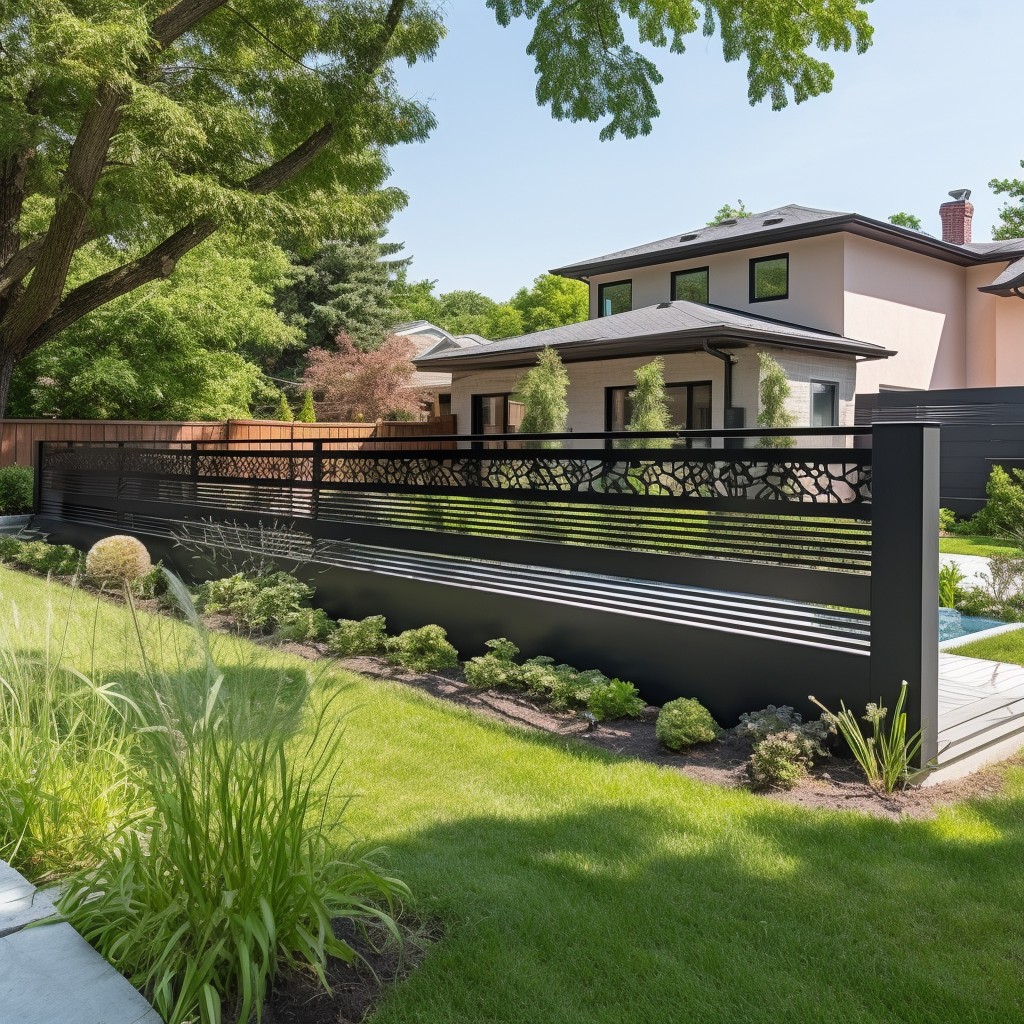
It’s lightweight, easy to install, and comes in various styles that can mimic the look of traditional wrought iron or wooden fences.
One of the significant advantages of aluminum fencing is its resistance to rusting and corrosion. Unlike iron or steel fences that require regular maintenance such as painting or coating with anti-rust solutions, aluminum doesn’t need any special treatment.
Another benefit of using aluminum for your fence is its affordability compared to other materials like wrought iron. You can get a high-quality fence at a fraction of the cost without sacrificing durability or style.
Composite Fencing
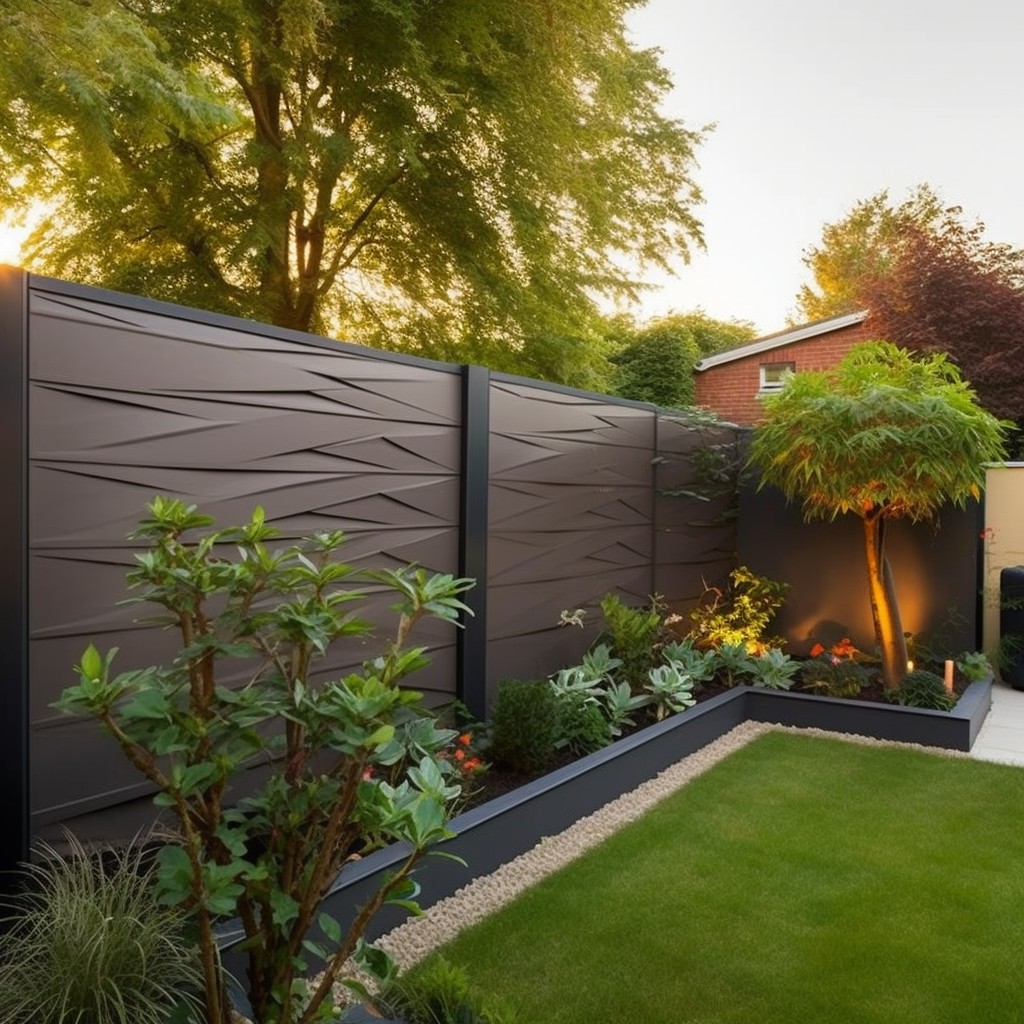
Made from recycled materials such as wood fibers and plastic, composite fences are durable, long-lasting, and resistant to rotting or fading.
One of the biggest advantages of composite fencing is its versatility in terms of design. You can choose from a variety of colors and styles that mimic natural wood grain or stone textures without having to worry about regular maintenance like staining or painting.
Another benefit is that it’s easy to install since it comes in pre-made panels that simply need to be attached together with brackets. This makes it an ideal DIY project for homeowners who want to save money on installation costs.
Bamboo Fencing
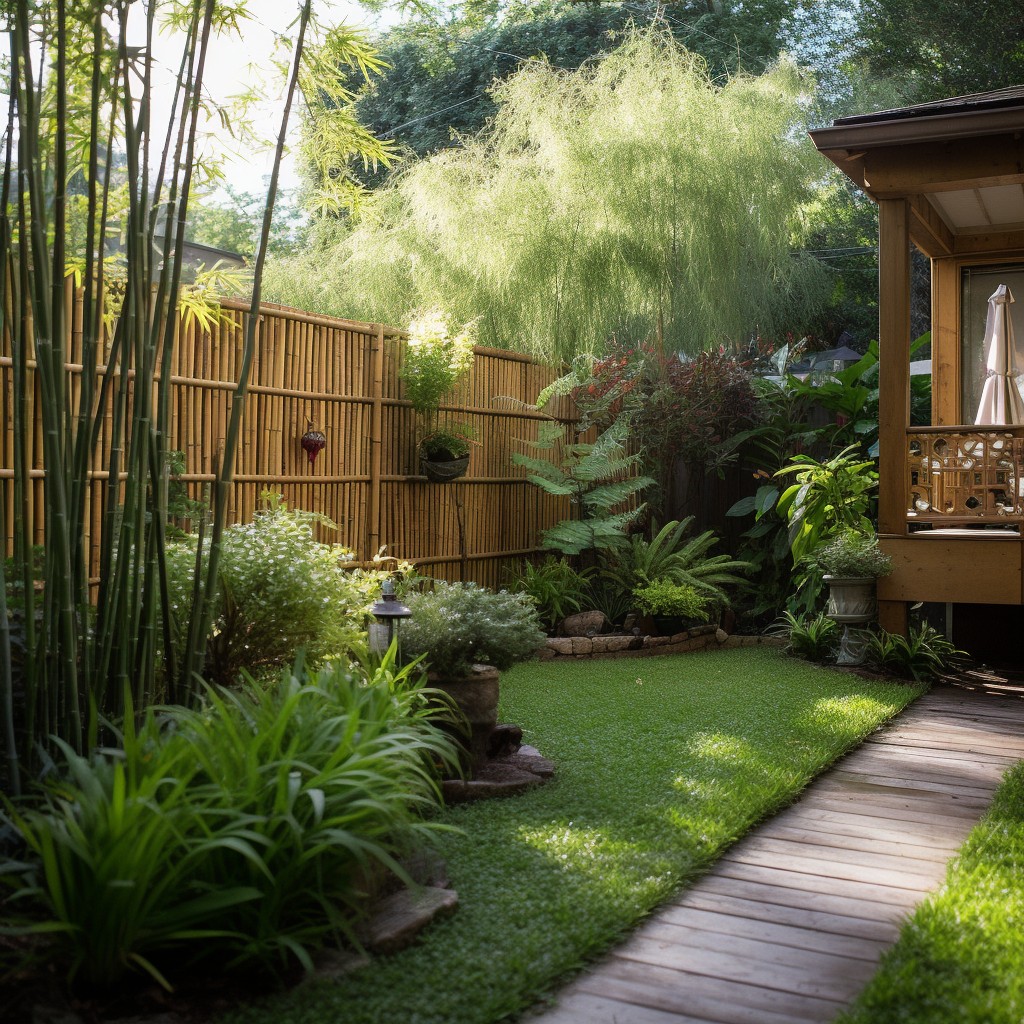
Bamboo is a fast-growing plant that can be harvested sustainably without harming the environment. It’s also incredibly durable and resistant to weathering, making it perfect for outdoor use.
Bamboo fencing comes in various styles and sizes, from rolled panels to individual poles that can be installed vertically or horizontally. The natural color of bamboo blends well with any landscape design while adding an exotic touch.
One of the benefits of using bamboo as a fence material is its flexibility; it can easily bend around curves or uneven terrain without breaking or cracking like traditional wood fences would do over time.
Another advantage of using bamboo fencing is its low maintenance requirements; all you need to do is clean it occasionally with soap water and let it dry naturally under sunlight.
Wrought Iron Fencing
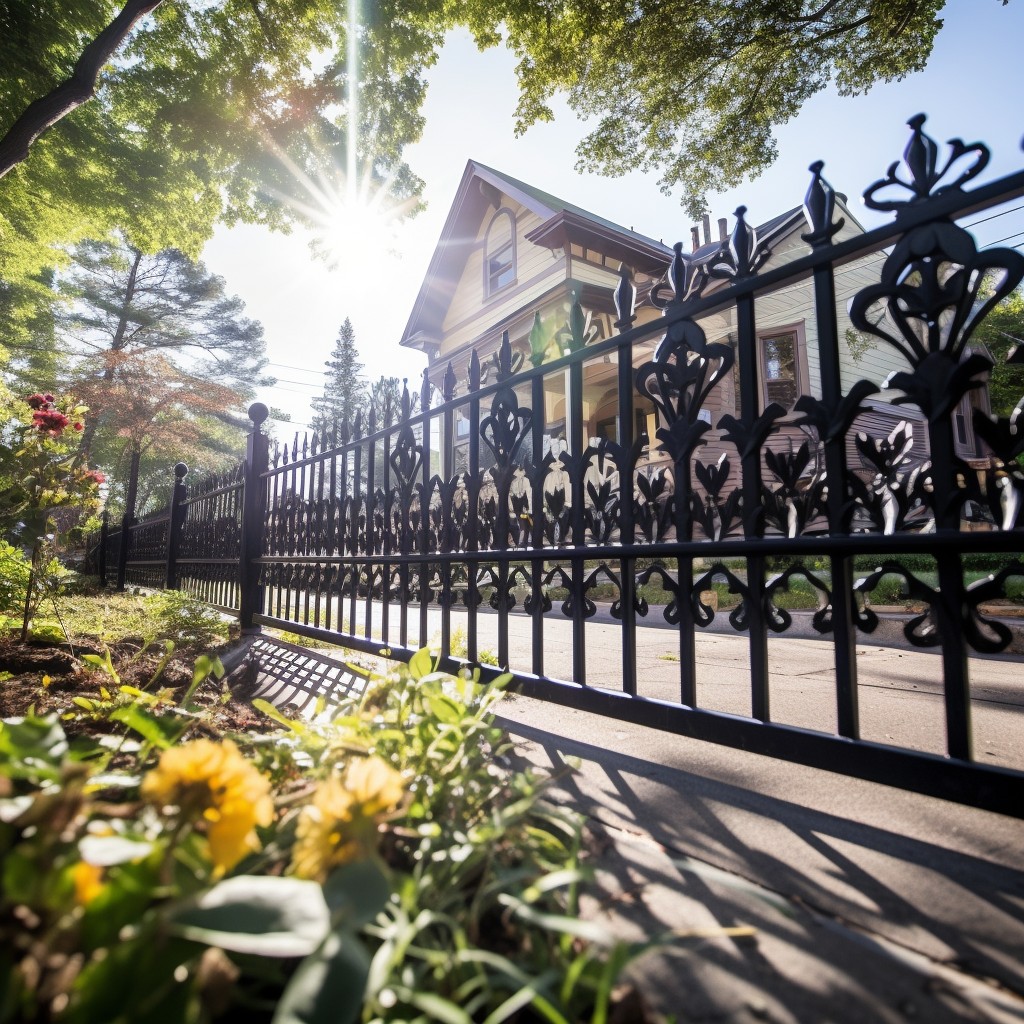
It’s durable, long-lasting, and adds a touch of elegance to any property. Wrought iron fences are made by heating the metal until it’s malleable enough to be shaped into intricate designs.
One of the benefits of wrought iron fencing is that it requires minimal maintenance compared to other fence materials like wood or vinyl. You won’t have to worry about rotting or warping with this type of fence.
Another advantage is its strength and durability; wrought iron fences can withstand harsh weather conditions such as strong winds or heavy rain without getting damaged easily.
While they may be more expensive than some other options on our list, their longevity makes them worth considering in the long run if you want something that will last for years without needing replacement.
Chain Link Fencing
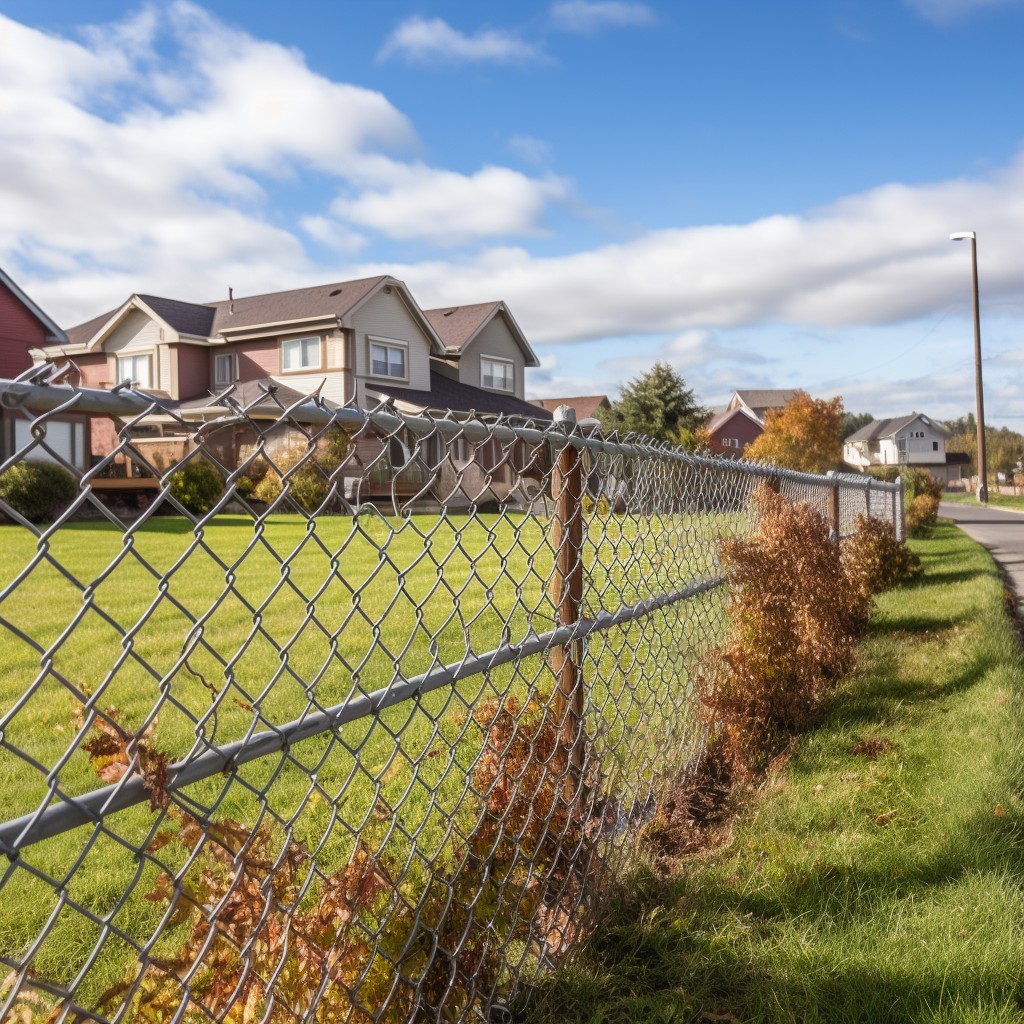
It’s made of galvanized steel wire that is woven into a diamond pattern, making it durable and long-lasting. While chain link fences are often associated with industrial or commercial properties, they can also be used in residential settings.
One advantage of chain link fencing is its transparency; it allows you to see through the fence while still providing security. This makes it an excellent choice for homeowners who want to keep an eye on their children or pets playing in the yard.
Another benefit of chain link fencing is its low maintenance requirements. Unlike wood fences that require regular staining or painting, all you need to do with a chain-link fence is occasionally wash it down with soap and water.
If privacy concerns are paramount, there are options available such as adding slats which come in various colors so that your fence can match your home’s exterior design scheme.
Steel Fencing
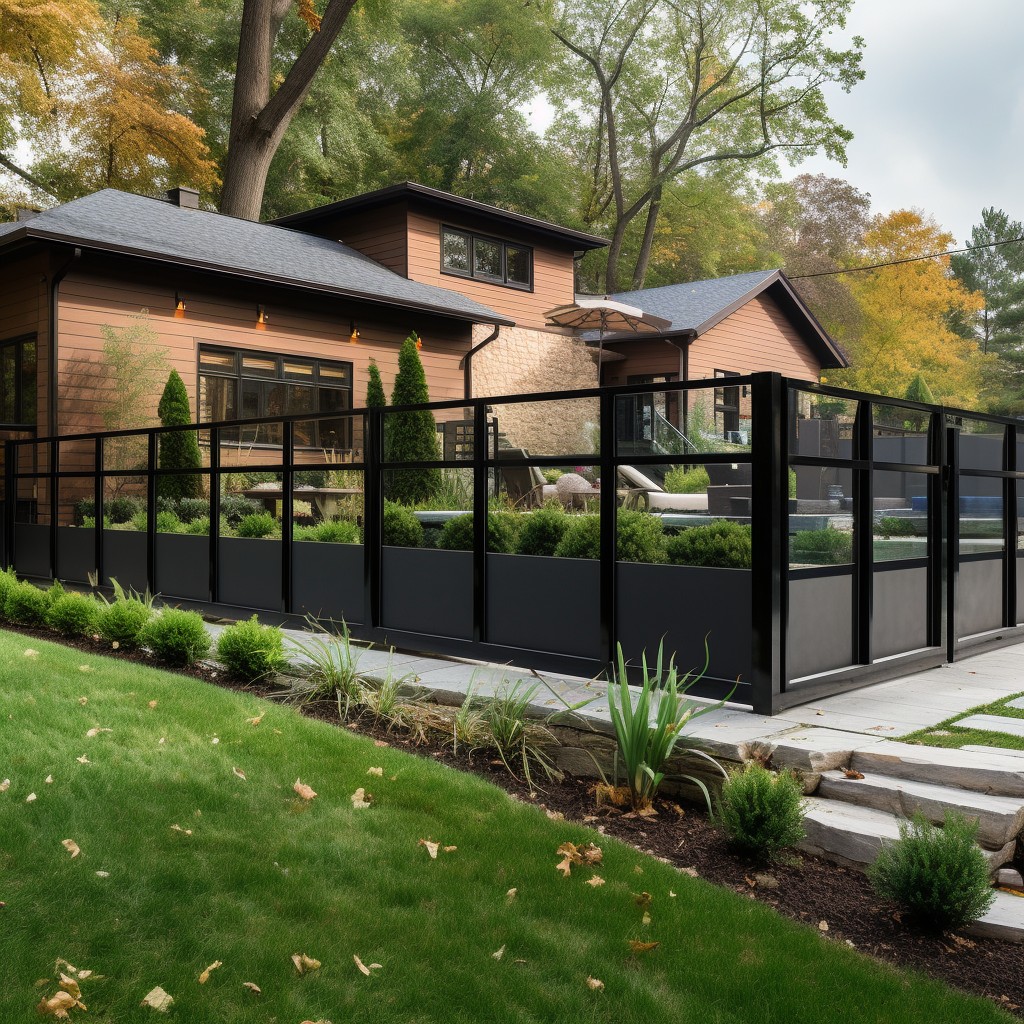
Steel fences are strong, sturdy, and can withstand harsh weather conditions. They also require minimal maintenance compared to other types of fences.
One of the biggest advantages of steel fencing is its versatility in design. You can choose from a variety of styles that range from traditional to modern designs.
Steel fences come in different colors as well so you can match them with your home’s exterior.
Another advantage is that they provide excellent security and privacy due to their strength and height options available.
However, one downside could be the cost as it may be more expensive than some other alternatives like vinyl or chain link fencing but it will last longer which makes up for the initial investment over time.
Living Fences
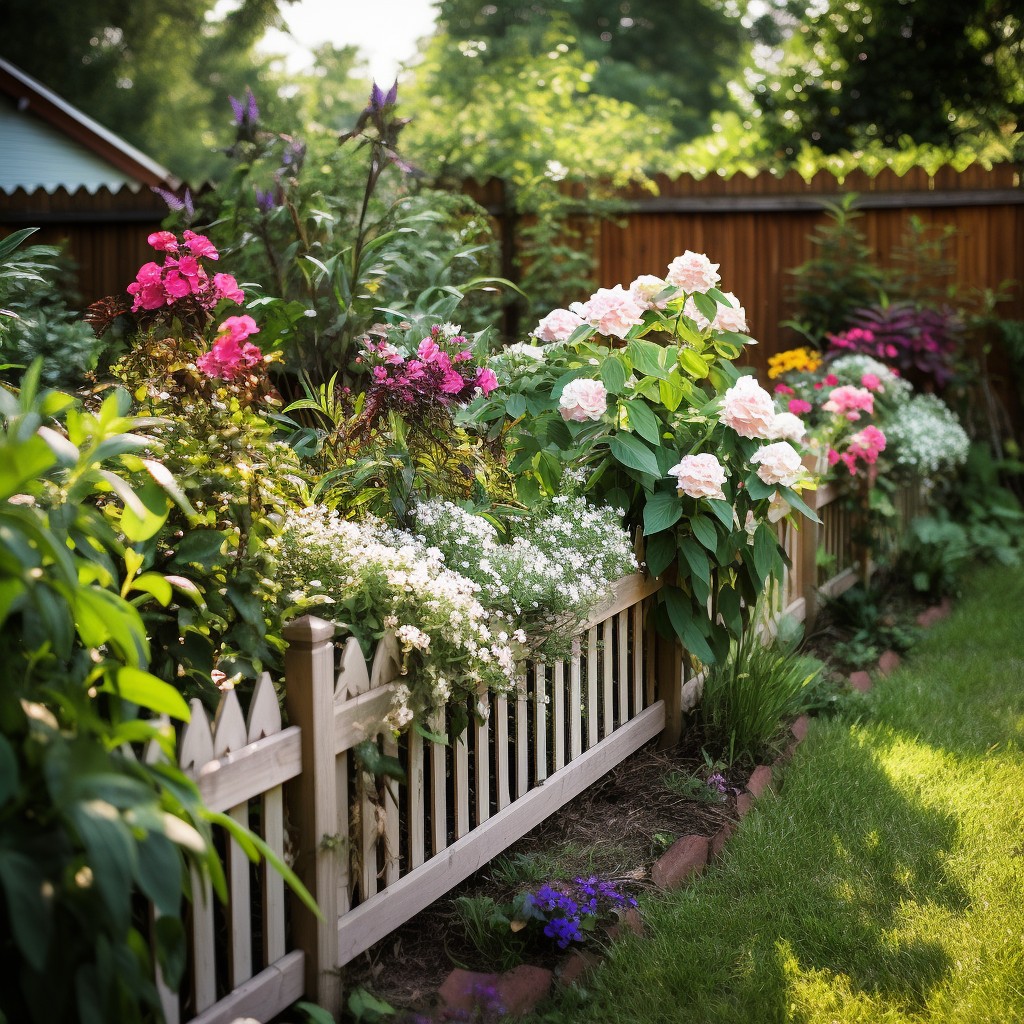
These types of fences use plants such as shrubs, trees or hedges to create a barrier around your property. Not only do they provide privacy and security but also add beauty and texture to your outdoor space.
One of the most popular options for living fences is using evergreen shrubs like boxwood or privet that can be trimmed into neat shapes. You can also opt for flowering plants like roses or clematis that will bloom in different seasons adding color throughout the year.
Living walls are another type of fence made up entirely of vegetation grown vertically on a structure attached to an existing wall or fence. They not only provide privacy but also help purify the air by absorbing pollutants while creating a beautiful green backdrop.
Gabion Walls
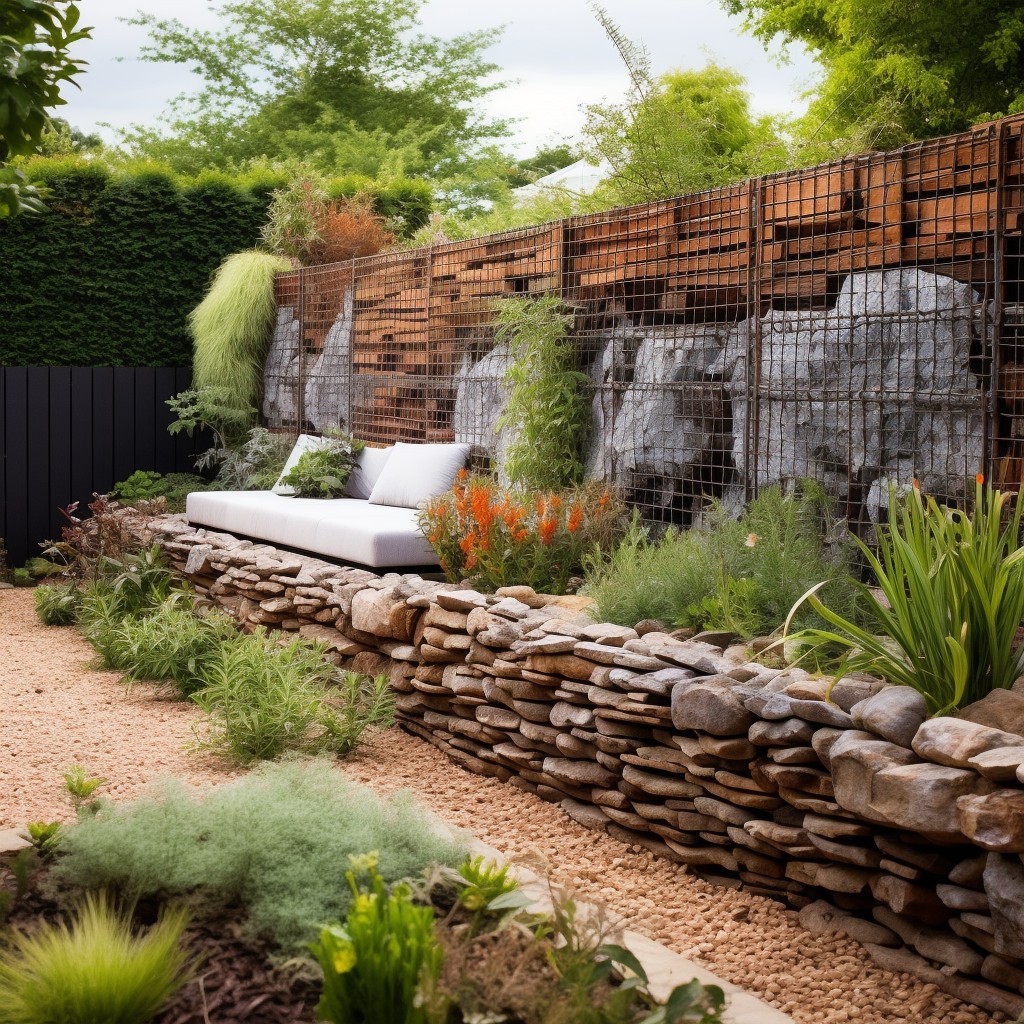
Gabions are wire cages filled with rocks or other materials that create a sturdy and attractive wall. They can be used to define property lines, retain soil on sloping terrain, or simply as an eye-catching design element.
One of the benefits of gabion walls is their durability. The wire cages are made from galvanized steel that resists rusting and corrosion over time.
They require little maintenance beyond occasional cleaning to remove debris.
Another advantage of gabions is their versatility in terms of appearance. You can choose from various rock types such as granite or limestone to match your home’s exterior color scheme perfectly.
Gabions also have environmental benefits since they use natural materials like stone instead of synthetic ones like vinyl fencing which may harm the environment during production processes.
Corrugated Metal Fences
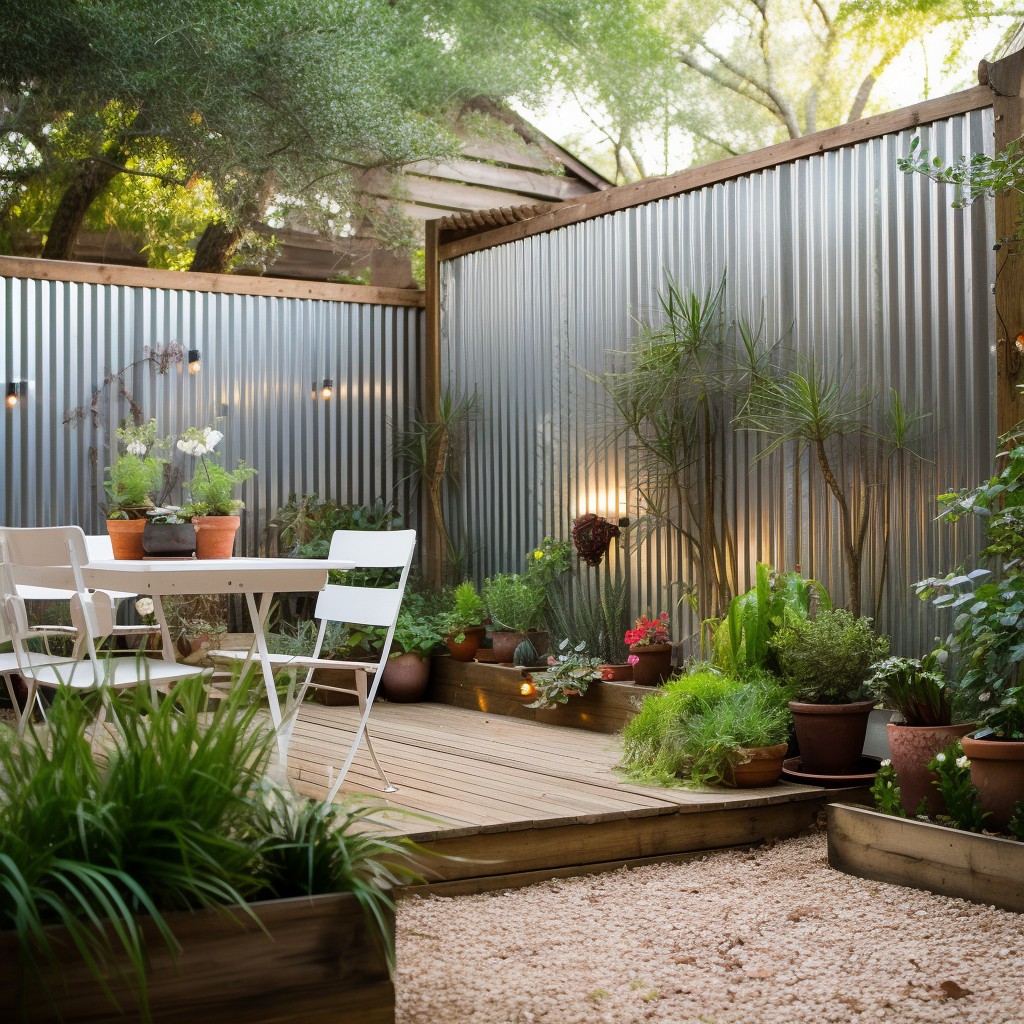
These fences are made of galvanized steel or aluminum sheets that have been shaped into wavy patterns to create a unique texture. Corrugated metal is durable, low-maintenance, and can withstand harsh weather conditions.
One of the benefits of using corrugated metal for fencing is its versatility in design. You can choose from different colors and finishes to match your home’s exterior decor or opt for rusted patina if you prefer an edgier look.
Another advantage is that it provides privacy without completely blocking out natural light like other solid fence materials do. This makes it perfect if you want some seclusion while still enjoying the view outside.
Masonry Walls
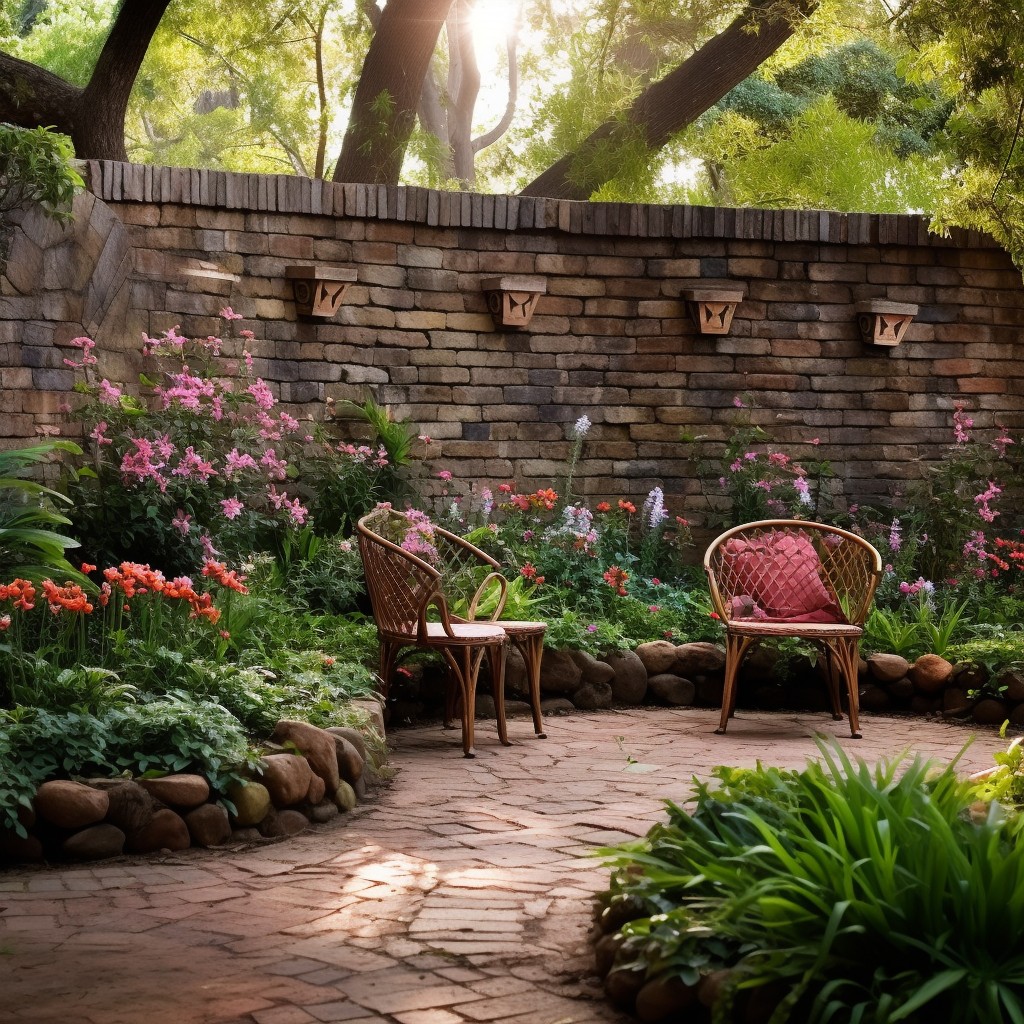
They offer durability, strength, and an elegant look that can enhance the overall aesthetic of your property. Masonry walls come in various materials such as brick, stone or concrete blocks which provide different textures and colors to choose from.
One of the benefits of masonry walls is their longevity; they can last for decades without requiring much maintenance. Unlike wood fences that need regular staining or painting to prevent rotting or warping due to weather conditions.
Another advantage is their ability to provide privacy while reducing noise pollution from outside sources like traffic on busy streets. The thickness and density of masonry material make it an excellent sound barrier compared with other fencing options.
Moreover, if you’re looking for added security features around your home perimeter walling it off with a sturdy masonry fence will deter intruders more effectively than any other type of fence would do.
Natural Stone Walls
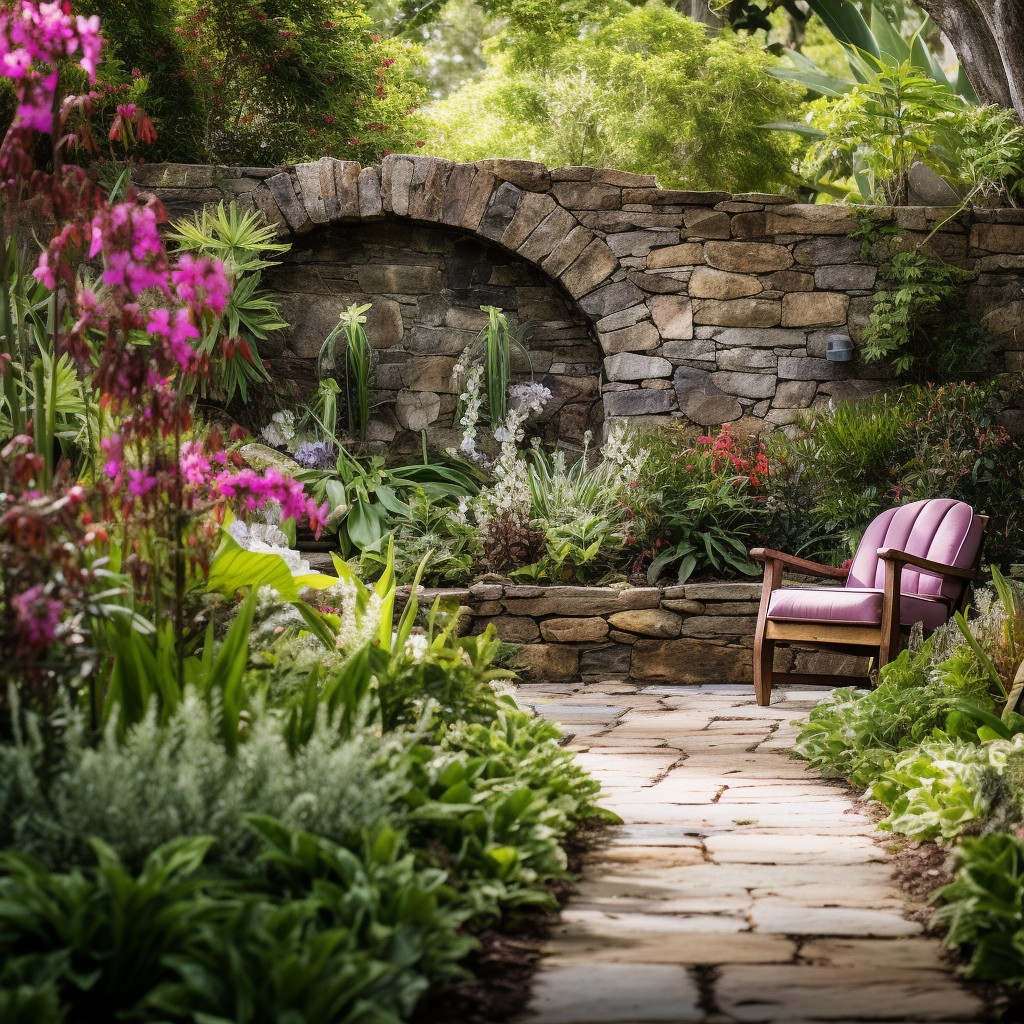
They offer durability and strength while adding a touch of elegance to your property. Natural stone fences come in various shapes, sizes, and colors to suit any style preference.
One advantage of natural stone walls is their ability to blend seamlessly with the surrounding landscape. The stones can be arranged in different patterns or stacked on top of each other for added texture and depth.
Another benefit is that they require minimal maintenance compared to other fencing options like wood or vinyl. Once installed correctly by professionals, they can last for decades without needing repairs or replacements.
While natural stone fences may cost more upfront than some alternatives like chain link fencing or bamboo fencing, their longevity makes them worth it in the long run as they add value to your home’s resale price.
Precast Concrete Walls
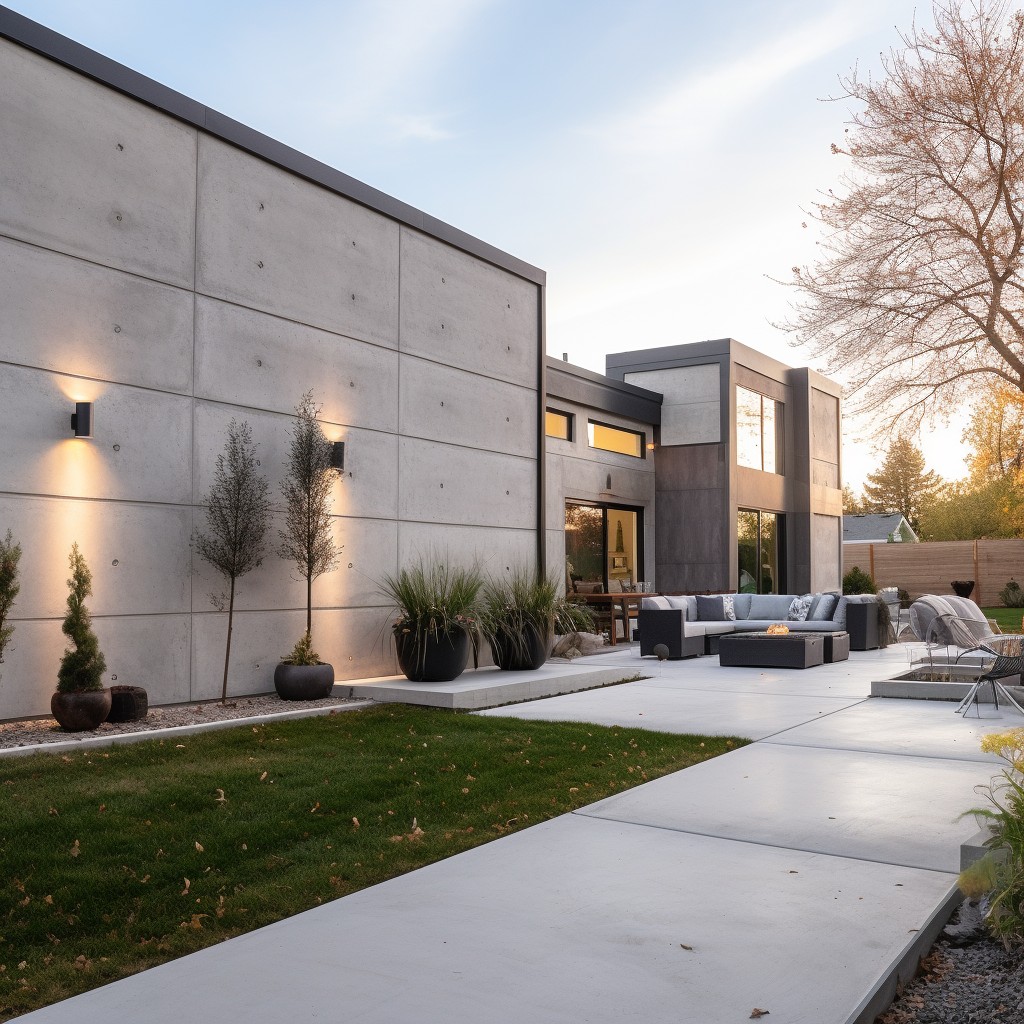
These walls are made by pouring concrete into molds, which can be customized to fit any design or style preference. Precast concrete walls come in various colors, textures, and finishes that mimic the look of natural stone or brick.
One of the biggest advantages of precast concrete walls is their durability. They can withstand harsh weather conditions such as heavy rain, strong winds, and extreme temperatures without cracking or fading over time.
They require minimal maintenance compared to other fencing options like wood fences that need regular staining or painting.
Another benefit is their versatility in terms of design options; you can choose from different patterns such as stacked stone veneer panels with mortar joints between them giving it an authentic masonry appearance while still being cost-effective.
Recycled Plastic Fences
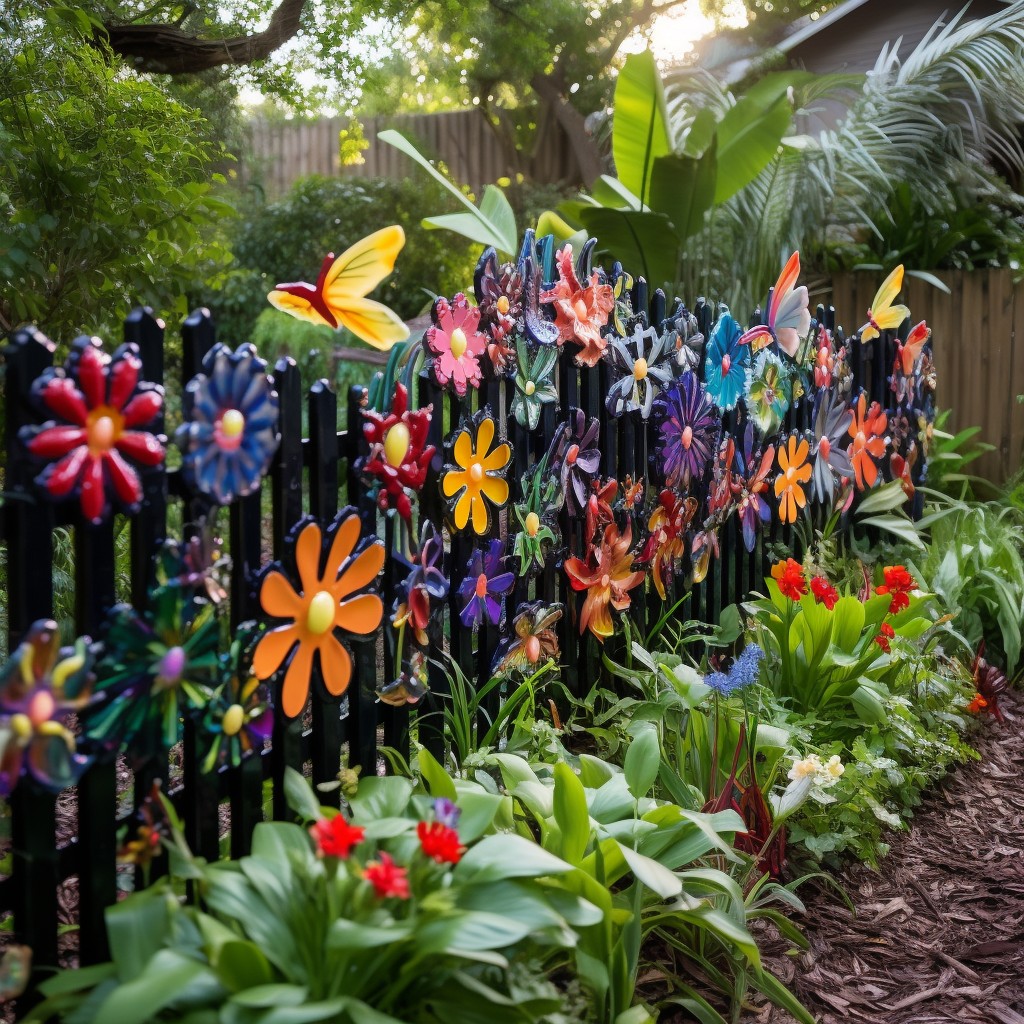
These fences are made from post-consumer waste such as milk jugs, soda bottles, and grocery bags. They come in various colors and styles that mimic the look of wood or metal but without the maintenance required.
One of the biggest advantages of using recycled plastic is its durability. It doesn’t rot or splinter like traditional wood fencing does over time.
It’s resistant to insects and moisture damage which makes it ideal for areas with high humidity levels.
Another benefit is that these fences require little to no upkeep once installed since they don’t need painting or staining like wooden ones do every few years.
Corrugated Metal Panels
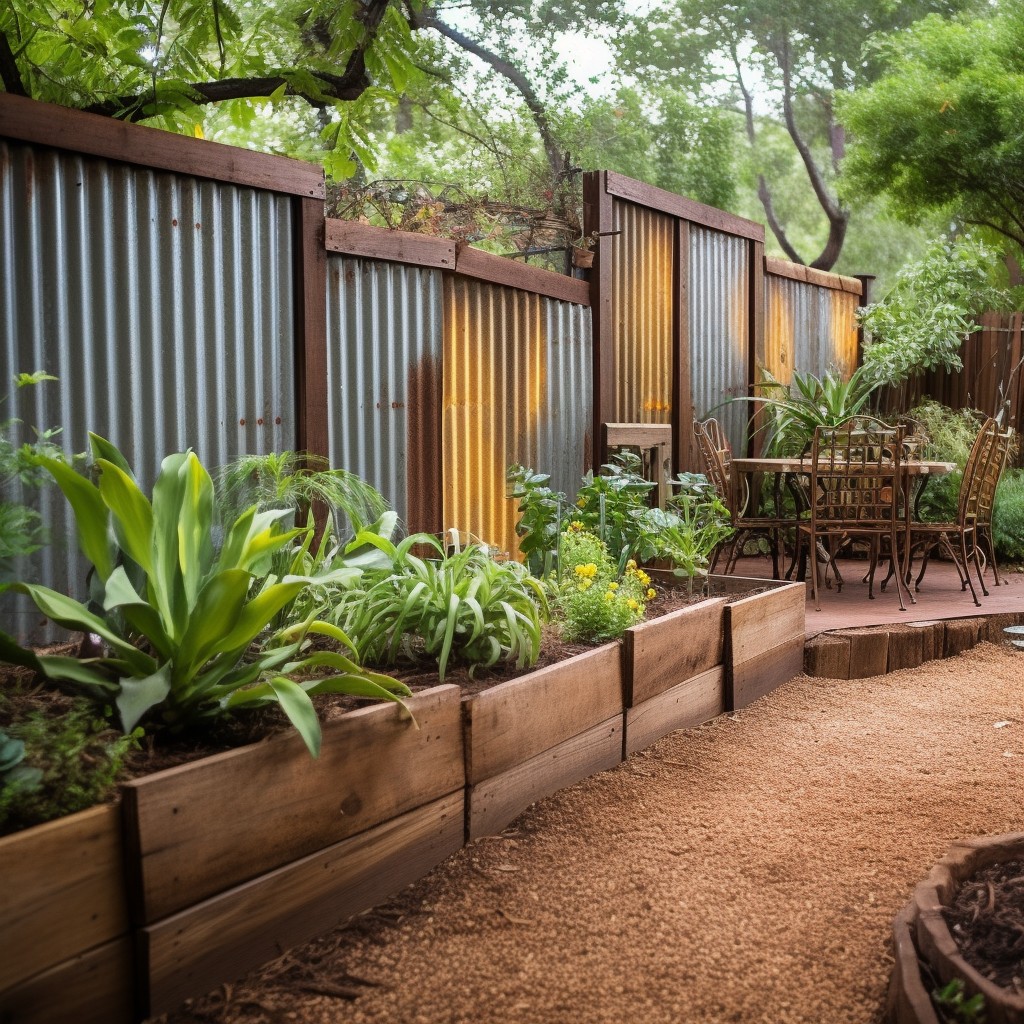
These panels come in various colors and designs, making them versatile enough to fit any style preference. They are also incredibly durable and require minimal maintenance, making them a cost-effective option in the long run.
One of the benefits of corrugated metal fencing is its ability to provide privacy without completely blocking out natural light. The gaps between each panel allow sunlight through while still maintaining your privacy from neighbors or passersby.
Another advantage of using corrugated metal panels is their resistance against harsh weather conditions such as wind, rain, and snow. Unlike wooden fences that can rot over time due to moisture exposure, these metal fences will not deteriorate easily.
If you’re concerned about rusting issues with traditional steel fencing options – fret not! Corrugated metals can be treated with anti-rust coatings that prevent corrosion from occurring on the surface layer.
Hedge Fence
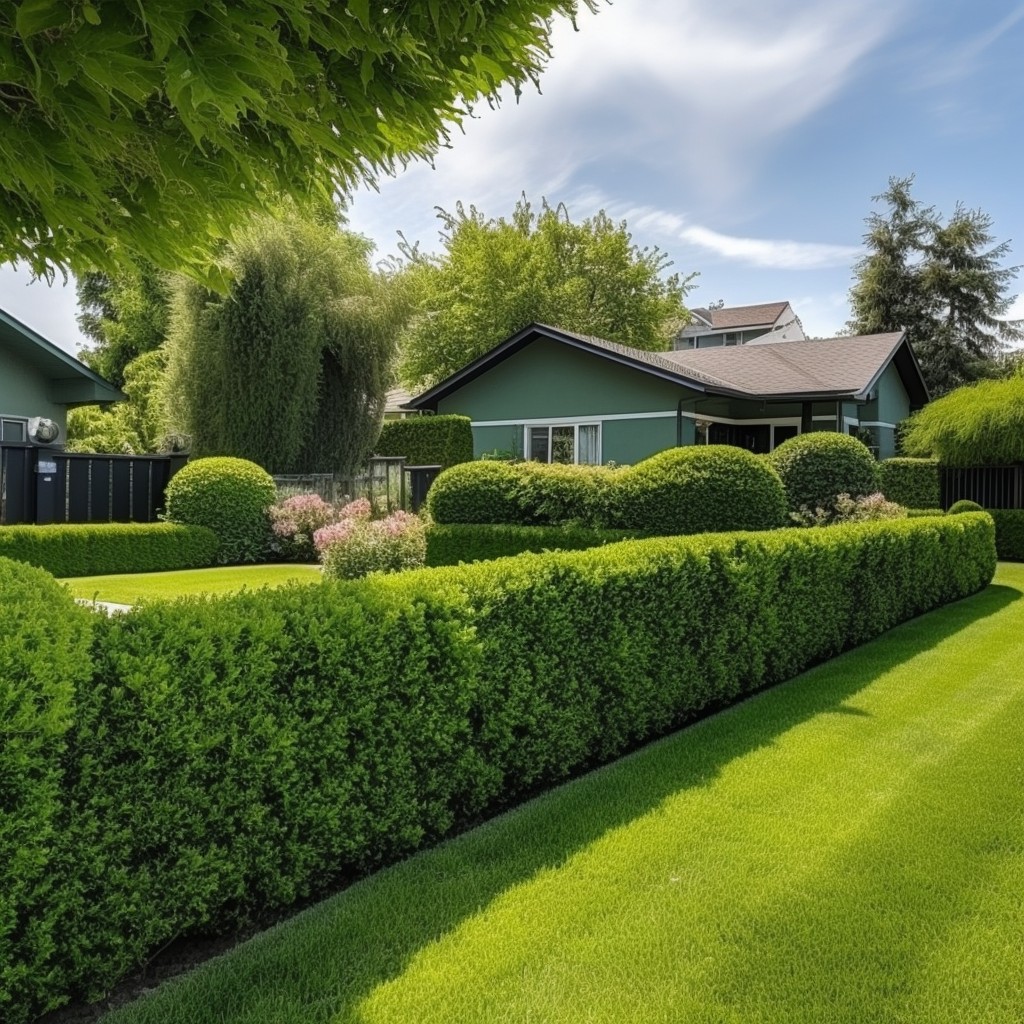
Hedges are not only beautiful but also provide privacy and security to your property. They can be grown in various shapes, sizes, and colors depending on your preference.
One of the best things about hedge fences is that they require minimal maintenance compared to other fencing options. You don’t have to worry about painting or staining them every few years as with wooden fences.
Another advantage of using hedges as fencing is that they are great at absorbing noise pollution from outside sources like traffic or neighbors’ conversations. This makes them an excellent choice if you live in a busy area where noise levels can become unbearable at times.
Vertical Garden Fence
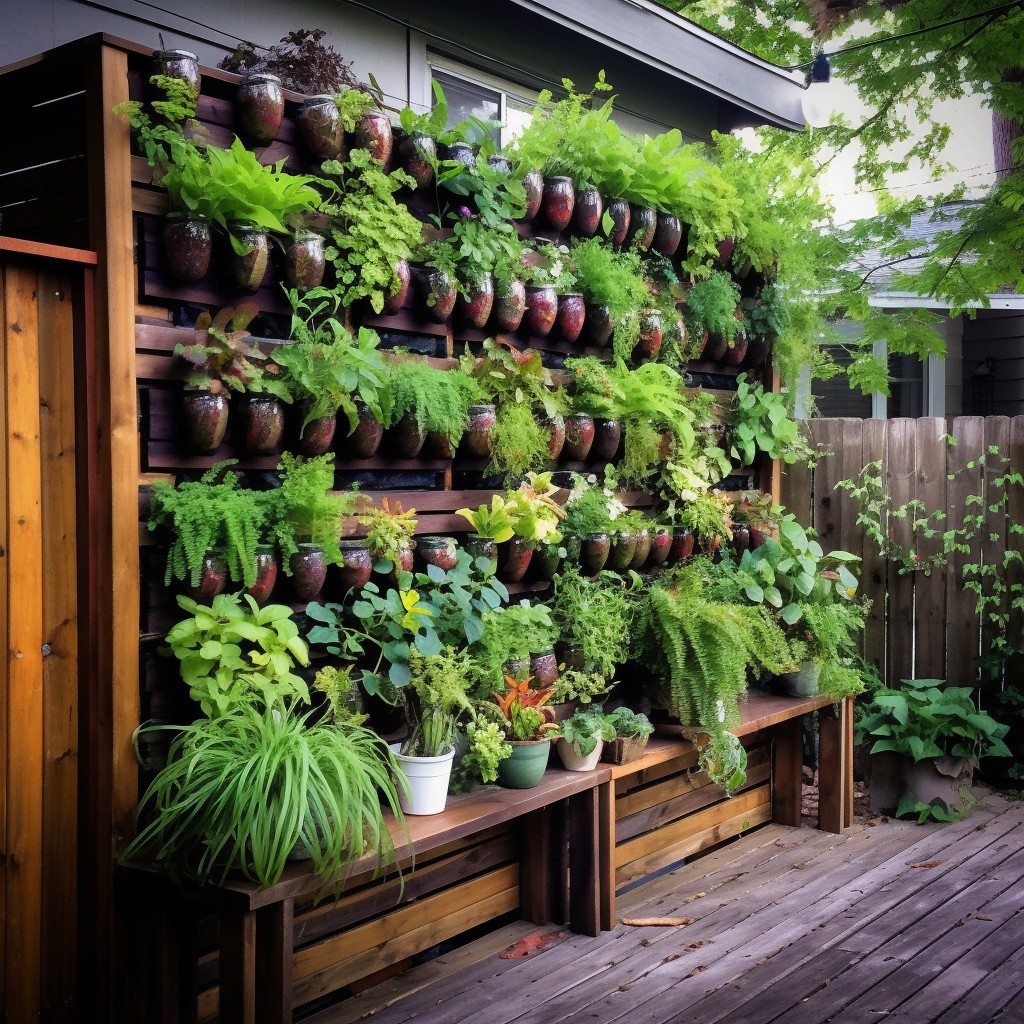
This type of fencing not only provides privacy but also adds greenery to your outdoor space. You can create your own vertical garden by attaching planters or pots to the fence and filling them with herbs, flowers, or succulents.
One advantage of this type of fencing is that it’s perfect for small spaces since it doesn’t take up any additional room in your yard. It’s also ideal if you want to grow plants but don’t have enough ground space.
Another benefit is that it helps purify the air around your home while providing shade during hot summer days. Plus, having a beautiful green wall will make any backyard look more inviting and relaxing.
Stone Fence
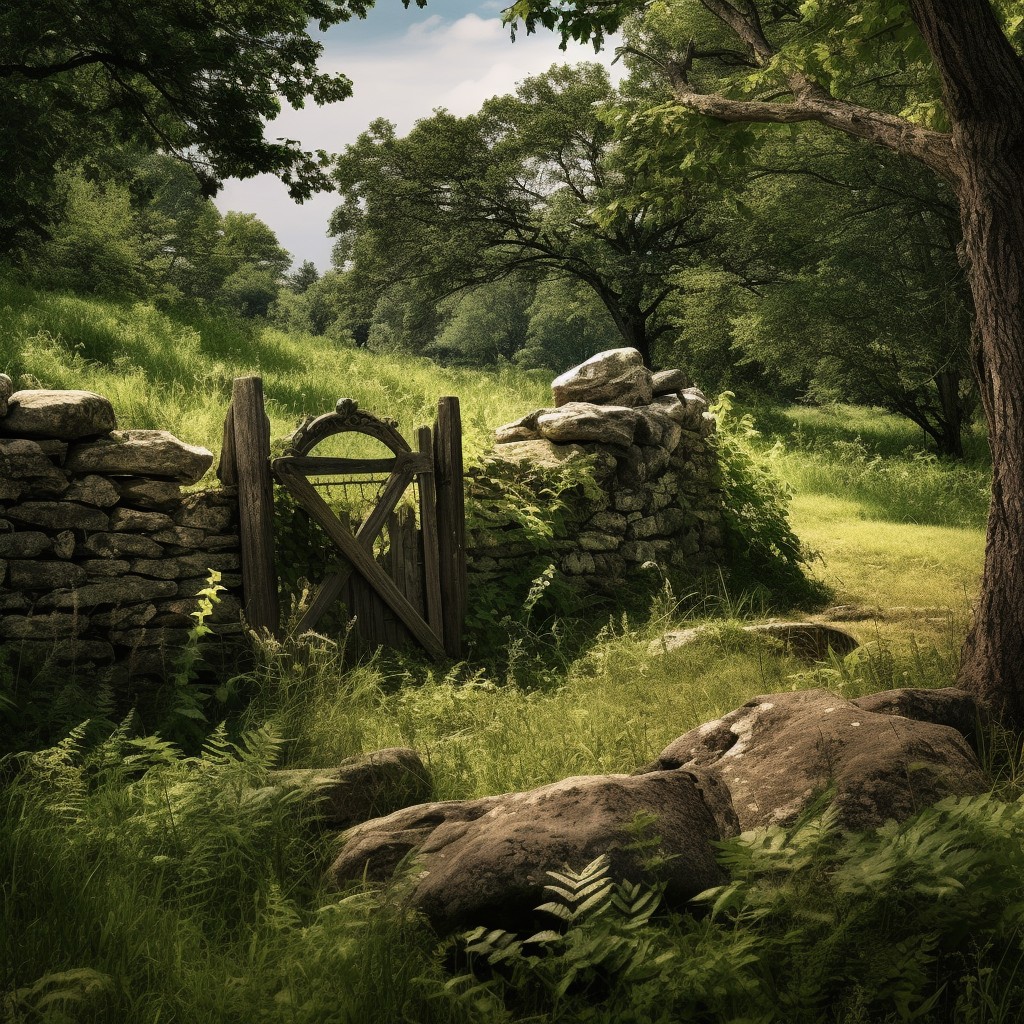
Stone fences are not only durable but also add an elegant and timeless look to your property. They come in various styles and designs, from rustic to modern, so you can choose one that suits your taste.
One of the benefits of stone fences is their low maintenance requirements. Unlike wooden or metal fences that require regular painting or staining, stone walls do not need any upkeep other than occasional cleaning.
Another advantage of using stones for fencing is their ability to withstand harsh weather conditions such as heavy rainfalls or strong winds without getting damaged easily. This makes them ideal for areas with extreme weather patterns.
In addition to being long-lasting and low-maintenance options, they also provide excellent privacy due to their height and thickness which make it difficult for anyone outside the fence line from seeing inside.
Brushwood Fence
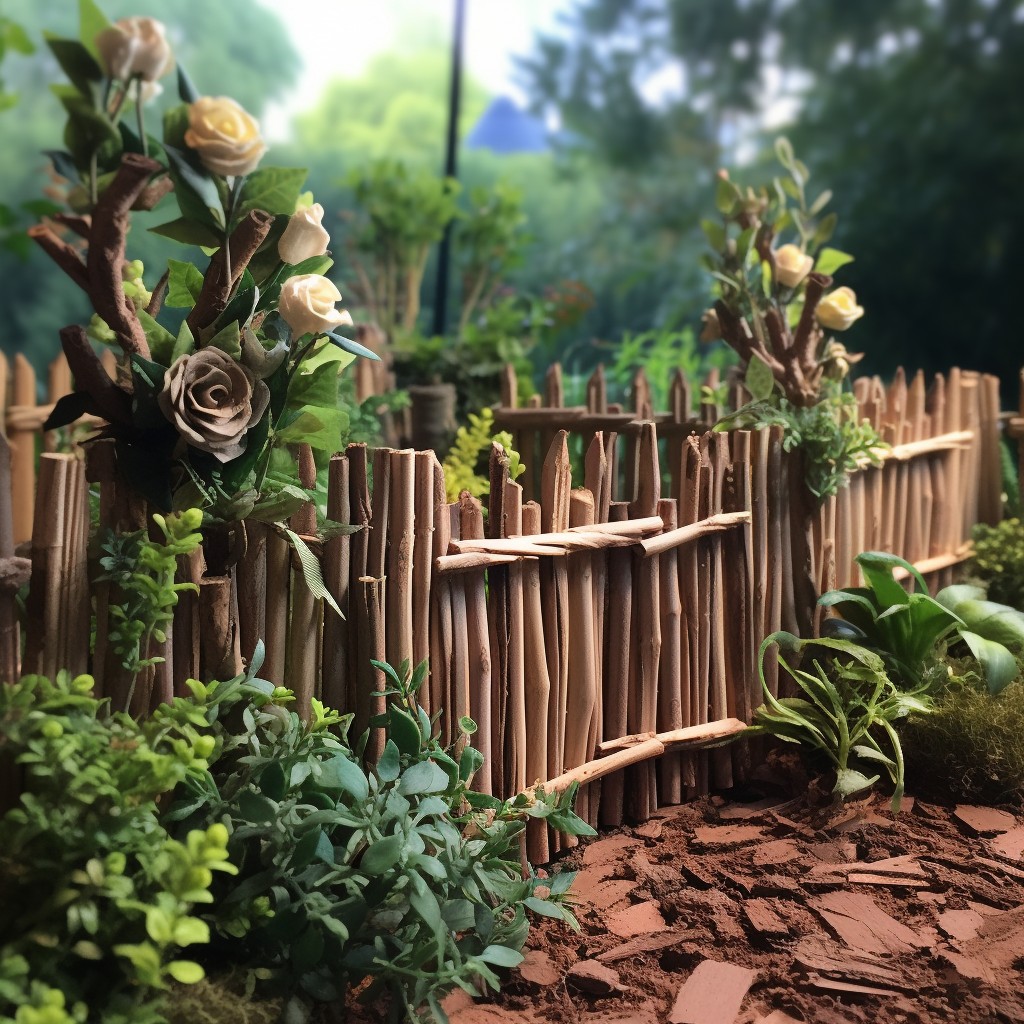
Made from woven branches of heather or willow, this type of fence provides privacy while blending seamlessly into the surrounding landscape. Brushwood fences are also eco-friendly as they are made from renewable resources.
One advantage of brushwood fencing is that it can be easily installed on uneven terrain without requiring any special tools or equipment. It’s also relatively low maintenance and can last up to 10 years with proper care.
Another benefit of brushwood fences is their ability to provide sound insulation, making them ideal for homes located near busy roads or noisy neighbors.
Rope With Hanging Vines
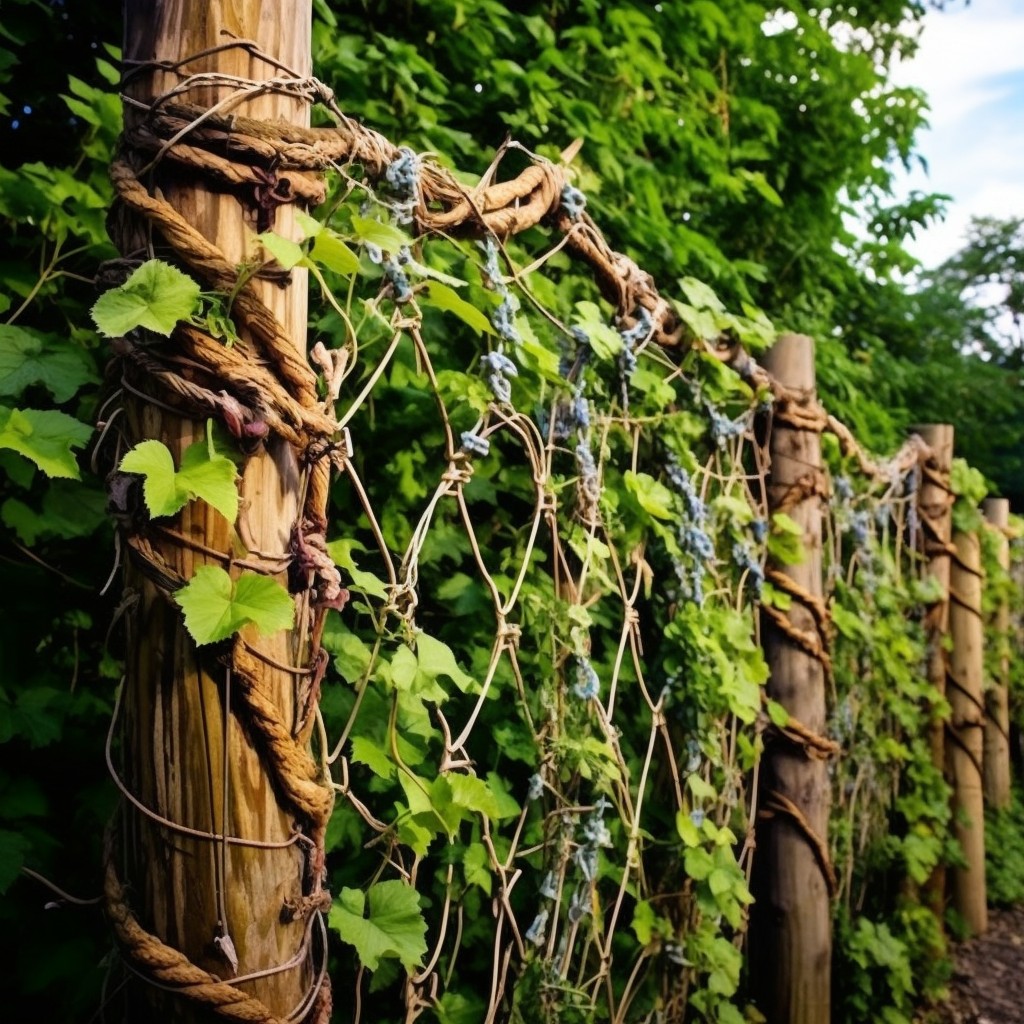
This type of fence adds a natural touch to your outdoor space while providing privacy and security. It’s perfect for those who want an organic look that blends seamlessly into the surrounding landscape.
To create this type of fence, you’ll need sturdy posts or trees as anchors for the rope. Then, choose your favorite climbing plants such as ivy or morning glory to weave through the ropes creating a living wall effect.
One advantage of using rope with hanging vines is its low cost compared to other types of fences. It requires minimal maintenance once established since nature takes care of most things on its own.
However, keep in mind that this option may not be suitable for all climates or locations due to varying weather conditions and plant growth patterns. So make sure you do some research before deciding if it’s right for your property.
Rope with hanging vines offers an excellent way to add beauty and functionality without sacrificing sustainability in any way!.
FAQ
What is cheaper than a wood fence?
A chain link fence is typically cheaper than a wood fence due to its less expensive material and fewer labor hours required for installation, but additional features such as gates, vinyl coating, or fabric screens can increase the total cost.
What is the cheapest fencing option?
The cheapest fencing option is PVC fencing, which substitutes wooden pickets and stakes while providing stability and reducing material and labor costs.
What is the cheapest most durable fence?
The cheapest and most durable fence is made of treated pine, as it is more affordable and durable compared to other wood options and more expensive materials such as vinyl, wrought iron, brick, or stone.
What are low-maintenance alternatives to wood fences?
Low-maintenance alternatives to wood fences include vinyl, composite, aluminum, and bamboo fencing.
Which eco-friendly fencing options can replace traditional wood fences?
Eco-friendly fencing options that can replace traditional wood fences include bamboo, recycled plastic, composite materials, and living fences.
How do the long-term costs of wood fence alternatives compare to traditional wood fencing?
Long-term costs of wood fence alternatives tend to be lower than traditional wood fencing due to factors such as lower maintenance and increased durability.
Recap
